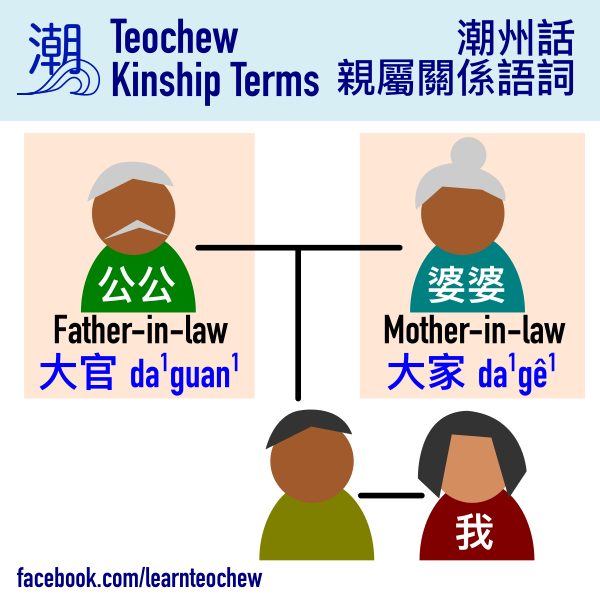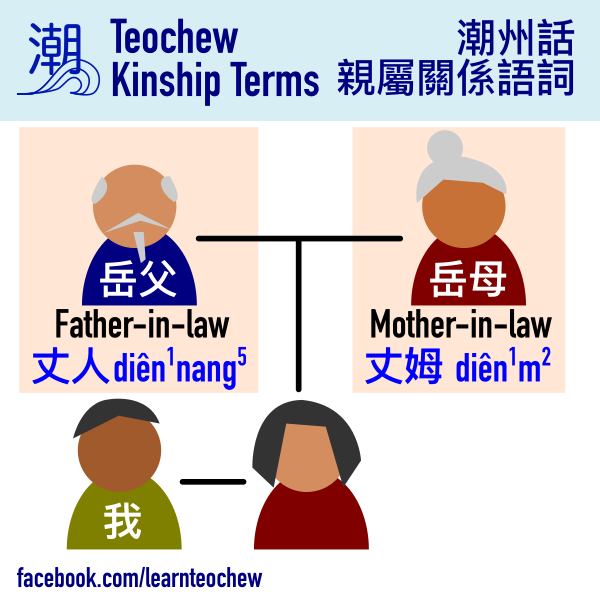Uniquely Teochew/Minnan Kinship Terms (5)
This is the fifth in a series of posts on Teochew kinship terms, featuring words used to address relatives that are found in Teochew or other Minnan languages but not in Mandarin.


大家 da1gê1 • husband’s mother • 婆婆 pópó
大官 da1guan1 • husband’s father • 公公 gōnggōng
丈姆 diên1m2 • wife’s mother • 岳母 yuèmǔ
丈人 diên1nang5 • wife’s father • 岳父 yuèfù
A woman would address her husband’s mother in Teochew as 大家 da1gê1, and her husband’s father as 大官 da1guan1. These are also written in characters as 担家 and 担管 respectively. 大家 can also be used to mean dai7gê1 “everybody”, and 大官 can mean dua7guan1 “important official”, but the meaning should usually be clear from context.
Interestingly, 大家 in Mandarin is also an old-fashioned way to write dàgū, a respectful term of address for a woman.
Nonetheless, the da1 in da1gê1 and da1guan1 may actually originate from a non-Han-Chinese language; one hypothesis is that the Southern Min languages borrowed this element from the Tai-Kadai languages spoken by people who also lived in the region where Southern Min languages are spoken today (see Du Jialun, 2018)
The standard Mandarin terms for husband’s mother and father are 婆婆 pópó and 公公 gōnggōng, but in some Mandarin varieties these refer to the grandparents. In Singapore Mandarin, the husband’s parents are addressed as 家婆 jiāpó and 家公 jiāgōng. However 家婆 is also familiar as the pejorative term gê1bo5 (Hokkien: ke-pô), meaning “busybody, nosey”.
The Teochew terms for one’s wife’s parents are 丈姆 diên1m2 and 丈人 diên1nang5. Although the formal written Mandarin terms are 岳母 yuèmǔ and 岳父 yuèfù respectively, similar terms are used in vernacular speech in many Mandarin dialects and other Chinese languages, e.g. 丈母 zhàngmǔ and 老丈人 lǎozhàngrén.
Previous posts
- a1ai5 阿嬡 “mother”
- a1gim6 阿妗 “mother’s brother’s wife”, a1m2 阿姆 “father’s elder brother’s wife”
- bhou2 𡚸 “wife”, ang1 翁 “husband”
- zao6sung1 走孫 “brother’s daughter”, dao1sung1 逗孫 “brother’s son”, sung1 孫 “grandson”, sung1neng2 孫女 “granddaughter”
Posted on 2021-02-02 00:00:00 +0000